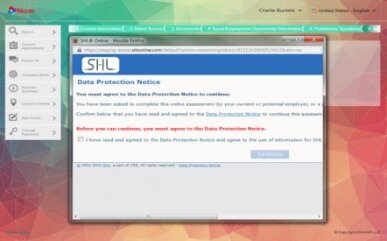
He is a CFA charterholder as well as holding FINRA Series 7, 55 & 63 licenses. He currently researches and teaches economic sociology and the social studies of finance at the Hebrew University in Jerusalem. When recording a transaction, every debit entry must have a corresponding credit entry for the same dollar amount, or vice-versa. Accounts payable are debts what types of payment can an employer use to pay employees for which invoices have been received, but have not yet been paid. Now, moving to the second scenario, a company was charged for utilities for the month, but the invoice has not yet been processed and received by the company. In the first example, an invoice from the supplier that just delivered raw materials has been received (i.e. the company is billed).
Steve Madden Announces Second Quarter 2023 Results – GlobeNewswire
Steve Madden Announces Second Quarter 2023 Results.
Posted: Wed, 02 Aug 2023 10:59:00 GMT [source]
Accruals impact a company’s bottom line, although cash has not yet exchanged hands. Accruals are important because they help to ensure that a company’s financial statements accurately reflect its actual financial position. The accrued concept is an accrual concept of accounting that requires recognition of each expense during the period under which they are incurred. It helps increase the accuracy of financial statements as recognition of accrued expenses matches expenses with the revenue generated during an accounting period.
Current payroll has not yet accounted for those salary expenses, so an accrued salary account is used. Whether an accrual is a debit or a credit depends on the type of accrual and the effect it has on the company’s financial statements. Realistically, the amount of an expense accrual is only an estimate, and so is likely to be somewhat different from the amount of the supplier invoice that arrives at a later date.
The drawbacks of using accrued expenses
In accounting, accruals broadly fall under either revenues (receivables) or expenses (payables). When your company purchases goods or services (or is scheduled to make one), your accounts department makes a note of this liability in the in-house finance management system. These may be estimates until you receive a final invoice with the official expense totals. These are expenses for goods or services that your business has purchased and will eventually have to pay. You have to take them into account when planning your budget and other expenses, even if they haven’t yet been invoiced. This way, you can make sure you don’t accidentally spend the money you will need to pay these expenses.
- If you’re using the wrong credit or debit card, it could be costing you serious money.
- An example of an accrued expense for accounts payable f could be the cost of electricity that the utility company has used to power its operations, but has not yet paid for.
- Accrued expenses are liabilities that build up over time and are due to be paid.
- For example, a company pays its February utility bill in March, or delivers its products to customers in May and receives the payment in June.
This means that companies are able to pay their suppliers at a later date. This includes manufacturers that buy supplies or inventory from suppliers. Hence, accrued expenses are typically projected with operating expenses (OpEx) as the driver, whereas accounts payable is projected using days payable outstanding (DPO), which is tied to COGS. Accrued Expense and Accounts Payable each refer to unfulfilled 3rd party payments, but for accrued expenses, an invoice has not been received yet.
What Are Accrued Expenses?
It may present either a gain or loss in each financial period in which the project is still active. If companies incurred expenses (i.e., received goods/services) but didn’t pay for them with cash yet, then the expenses need to be accrued. Understanding how accrued expenses work can help you streamline your company’s operations, budget efficiently, and maintain easily accessible records for filing tax deductions. Accepted and mandatory accruals are decided by the Financial Accounting Standards Board (FASB), which controls interpretations of GAAP.

While recording an accrual expense, the expense ledger gets debited, and the accrued liability account gets credited. This appears in the balance sheet as the accrued expense is for a limited time period and is classified as a current liability in the balance sheet. Therefore, whenever an expense is accrued, it forms part of the current liability under the balance sheet.
Examples include purchases made from vendors on credit, subscriptions, or installment payments for services or products that haven’t been received yet. Accounts payable are expenses that come due in a short period of time, usually within 12 months. Also called accrued liabilities, these expenses are realized on a company’s balance sheet and are usually current liabilities.
You now carry $3,000 in accrued expenses on your books to reflect the $3,000 you owe the landlord. To illustrate an accrued expense, let’s assume that a company borrowed $200,000 on December 1. The agreement requires that the company repay the $200,000 on February 28 along with $6,000 of interest for the three months of December through February.
Want More Helpful Articles About Running a Business?
Accrued expenses are expenses that a business incurs, but hasn’t yet paid yet. For example, a company might receive goods or services and pay for them at a later time. You receive the item immediately, but you’ll pay for it later and need to account for it in your budget. Debits and credits are used in a company’s bookkeeping in order for its books to balance.
SPX Technologies Reports Second Quarter 2023 Results – GlobeNewswire
SPX Technologies Reports Second Quarter 2023 Results.
Posted: Wed, 02 Aug 2023 20:06:00 GMT [source]
As a result, businesses can often better anticipate revenues while tracking future liabilities. The general purpose of an accrual account is to match expenses with the accounting period during which they were incurred. Accrued expenses are also effective in predicting the amount of expenses the company can expect to see in the future.
Accrual Accounting
The Ascent is a Motley Fool service that rates and reviews essential products for your everyday money matters. We’re firm believers in the Golden Rule, which is why editorial opinions are ours alone and have not been previously reviewed, approved, or endorsed by included advertisers. Editorial content from The Ascent is separate from The Motley Fool editorial content and is created by a different analyst team. Take a look at the following example of when you should accrue an expense. And if you work with international, overseas suppliers Deskera allows you to create and pay bills in more than 120 currencies online.
As an example, on May 1, you contract with a cleaning company to clean your office four times a month. As of May 31, you have not received an invoice from the company for the office cleaning, nor has the bill been paid. To account for that expense properly, you will need to record the office cleaning expense as an accrual. Keep in mind that once the invoice for an accrued expense arrives, that amount is moved to accounts payable. Accrued expenses, and accrual accounting in general, lets you keep a more accurate and complete record of your financial transactions. Although the cash basis might seem a more straightforward way of doing accounting, the accrual basis has proven to be the better measure for a company’s profitability.
Payables should represent the exact amount of the total owed from all of the invoices received. The term accrued means to increase or accumulate so when a company accrues expenses, this means that its unpaid bills are increasing. Expenses are recognized under the accrual method of accounting when they are incurred—not necessarily when they are paid. Generally, accrued expenses correspond to the operating expense line item, whereas accounts payable is typically more related to the cost of goods sold (COGS) line item on the income statement.
As of December 31, the company will not have an invoice to process and will not be paying the interest until it is due on February 28. The Financial Accounting Standards Boards (FASB) has set out Generally Accepted Accounting Principles (GAAP) in the U.S. dictating when and how companies should accrue for certain things. For example, “Accounting for Compensated Absences” requires employers to accrue a liability for future vacation days for employees.

When the company’s accounting department receives the bill for the total amount of salaries due, the accounts payable account is credited. Accounts payable is found in the current liabilities section of the balance sheet and represents the short-term liabilities of a company. After the debt has been paid off, the accounts payable account is debited and the cash account is credited. While some very small or new businesses use cash accounting, companies normally prefer the accrual accounting method.
Guide to Understanding Accounts Receivable Days (A/R Days)
A company pays its employees’ salaries on the first day of the following month for services received in the prior month. If on Dec. 31, the company’s income statement recognizes only the salary payments that have been made, the accrued expenses from the employees’ services for December will be omitted. A company often attempts to book as many actual invoices it can during an accounting period before closing its accounts payable ledger. Then, supporting accounting staff analyze what transactions/invoices might not have been recorded by the AP team and book accrued expenses.

Therefore, to carry an accurate recording of Joe’s bonuses, the company must make a bonus liability accrual to record these bonus expenses. When the company pays out Joe’s owed bonus, the transaction will be recorded by debiting its liability account and crediting its cash account. In financial accounting, accruals refer to the recording of revenues a company has earned but has yet to receive payment for, and expenses that have been incurred but the company has yet to pay. This method also aligns with the matching principle, which says revenues should be recognized when earned and expenses should be matched at the same time as the recognition of revenue. For accrued revenues, the journal entry would involve a credit to the revenue account and a debit to the accounts receivable account. This has the effect of increasing the company’s revenue and accounts receivable on its financial statements.







